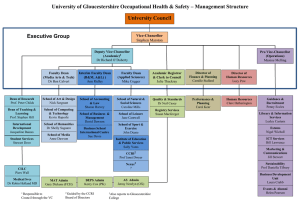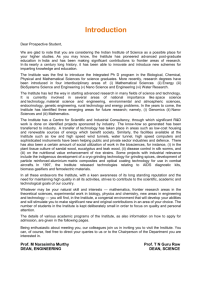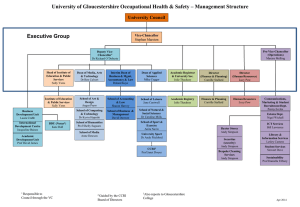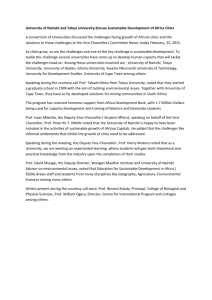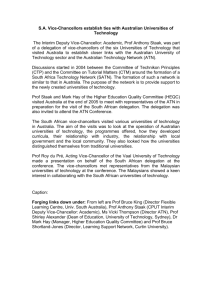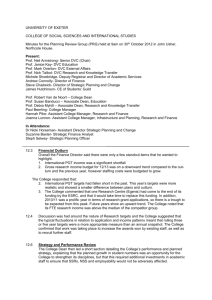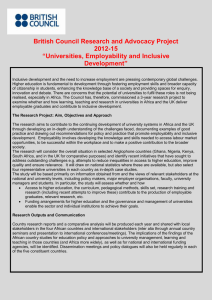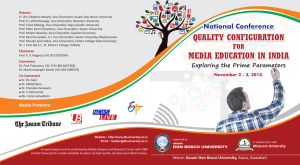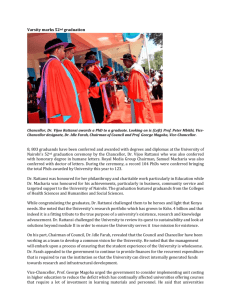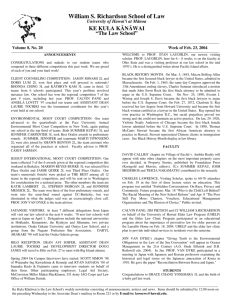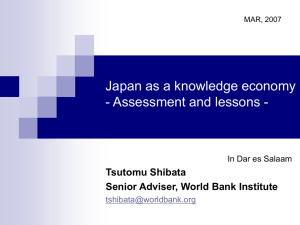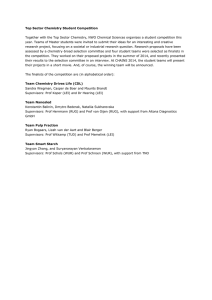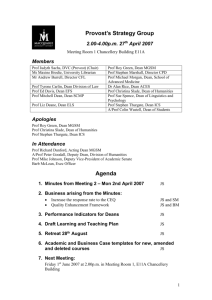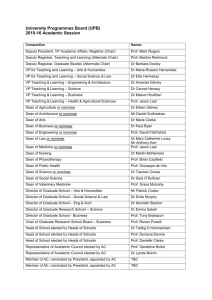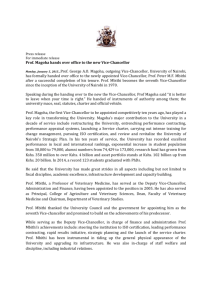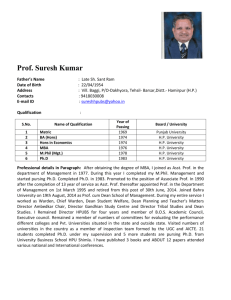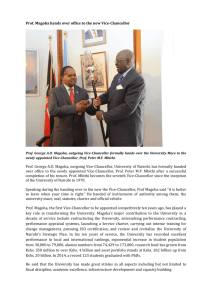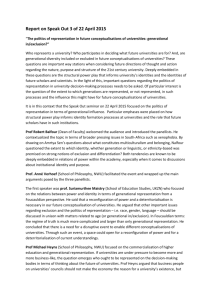DEAN 2008 Conference, Barcelona, November 2008
advertisement
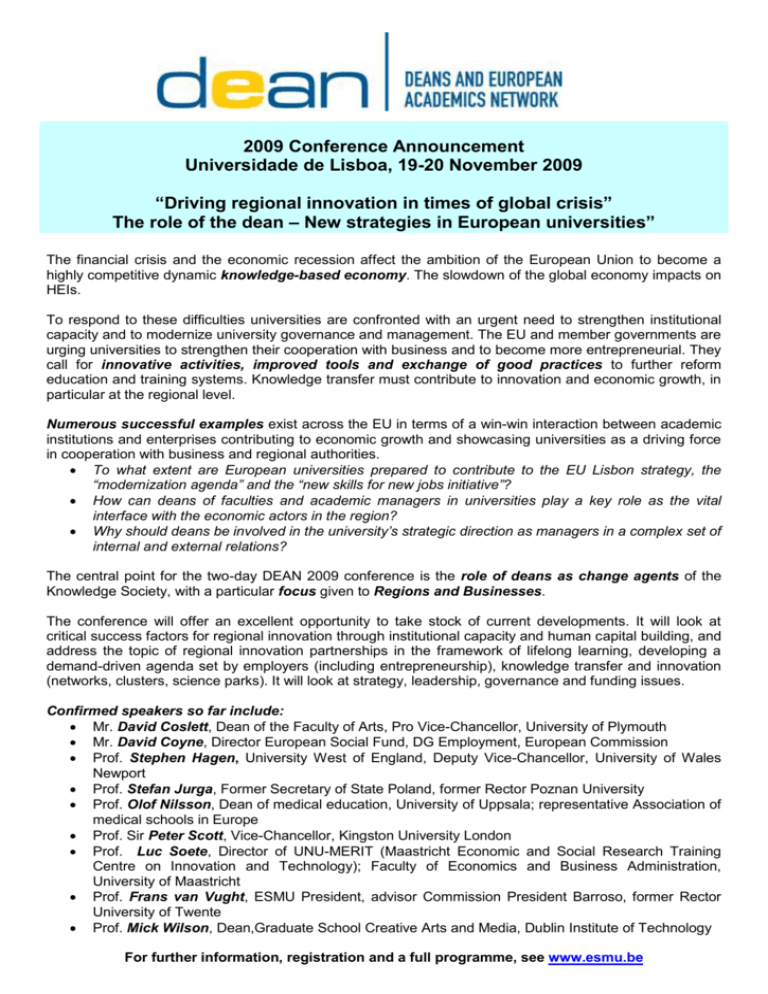
2009 Conference Announcement Universidade de Lisboa, 19-20 November 2009 “Driving regional innovation in times of global crisis” The role of the dean – New strategies in European universities” The financial crisis and the economic recession affect the ambition of the European Union to become a highly competitive dynamic knowledge-based economy. The slowdown of the global economy impacts on HEIs. To respond to these difficulties universities are confronted with an urgent need to strengthen institutional capacity and to modernize university governance and management. The EU and member governments are urging universities to strengthen their cooperation with business and to become more entrepreneurial. They call for innovative activities, improved tools and exchange of good practices to further reform education and training systems. Knowledge transfer must contribute to innovation and economic growth, in particular at the regional level. Numerous successful examples exist across the EU in terms of a win-win interaction between academic institutions and enterprises contributing to economic growth and showcasing universities as a driving force in cooperation with business and regional authorities. To what extent are European universities prepared to contribute to the EU Lisbon strategy, the “modernization agenda” and the “new skills for new jobs initiative”? How can deans of faculties and academic managers in universities play a key role as the vital interface with the economic actors in the region? Why should deans be involved in the university’s strategic direction as managers in a complex set of internal and external relations? The central point for the two-day DEAN 2009 conference is the role of deans as change agents of the Knowledge Society, with a particular focus given to Regions and Businesses. The conference will offer an excellent opportunity to take stock of current developments. It will look at critical success factors for regional innovation through institutional capacity and human capital building, and address the topic of regional innovation partnerships in the framework of lifelong learning, developing a demand-driven agenda set by employers (including entrepreneurship), knowledge transfer and innovation (networks, clusters, science parks). It will look at strategy, leadership, governance and funding issues. Confirmed speakers so far include: Mr. David Coslett, Dean of the Faculty of Arts, Pro Vice-Chancellor, University of Plymouth Mr. David Coyne, Director European Social Fund, DG Employment, European Commission Prof. Stephen Hagen, University West of England, Deputy Vice-Chancellor, University of Wales Newport Prof. Stefan Jurga, Former Secretary of State Poland, former Rector Poznan University Prof. Olof Nilsson, Dean of medical education, University of Uppsala; representative Association of medical schools in Europe Prof. Sir Peter Scott, Vice-Chancellor, Kingston University London Prof. Luc Soete, Director of UNU-MERIT (Maastricht Economic and Social Research Training Centre on Innovation and Technology); Faculty of Economics and Business Administration, University of Maastricht Prof. Frans van Vught, ESMU President, advisor Commission President Barroso, former Rector University of Twente Prof. Mick Wilson, Dean,Graduate School Creative Arts and Media, Dublin Institute of Technology For further information, registration and a full programme, see www.esmu.be
